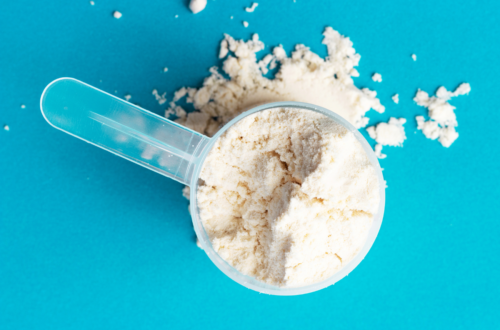
Debunk the Junk: The “Keto” Diet
If you’ve stood in the grocery checkout line sometime in the last year, then I am sure you’ve noticed the ketogenic diet on the cover of almost every health and wellness magazine. Promising weight loss, improved acne, neurological repair, and the reversal of type 2 diabetes, the keto diet has many reported health claims. But what is the keto diet? Does it really work? Should I try it?
The Ketogenic Diet was developed in the 1920’s by a team of doctors at Mayo Clinic as a treatment for pediatric epilepsy. At about 80% fat, 5% carbohydrate, and 15% protein, the diet encourages the body to enter into ketosis (fat-burning), which reduces the severity and frequency of seizures. For childhood epilepsy, this diet is very effective.
For weight loss, acne, and all the rest; results are mixed. A diet high in fat can be low in fruits, vegetables, and whole grains, causing constipation and potential vitamin deficiencies. Excess fat from animals sources can be inflammatory, worsening insulin resistance, atherosclerosis (plaque build-up in arteries), and gout. While fat from plant or fish-based sources, like olive oil, salmon, and nuts, can lend itself to better heart health. If you’re a “sweet tooth” and often reach for cookies, cakes, soda or donuts – there is minimal sugar on the keto diet, so the calorie reduction alone may aid in many of the health benefits.
However, there is evidence to suggest that the keto diet is making waves within certain disease states. Excess consumption of refined carbohydrates increases the bodies insulin needs, which can drive beta cells in the pancreas to overproduce, burn-out, and perpetrate the cycle of metabolic dysfunction leading to type 2 diabetes. A diet lower in refined (and complex) carbohydrates requires less insulin. For this reason, many find that their medication needs decrease while eating a low-carbohydrate eating pattern.
Before you start on any “diet” or major change in your eating pattern, I recommend consulting with you care team. When working with clients that are interested in nutrition interventions for disease management and prevention, I encourage them to seek safe and sustainable options based on their unique health and wellness needs.
- Publishing HH. Should you try the keto diet? Harvard Health. https://www.health.harvard.edu/staying-healthy/should-you-try-the-keto-diet. Accessed March 14, 2019.
- Roehl K, Sewak SL. Practice Paper of the Academy of Nutrition and Dietetics: Classic and Modified Ketogenic Diets for Treatment of Epilepsy. Journal of the Academy of Nutrition and Dietetics. 2017;117(8):1279-1292. doi:10.1016/j.jand.2017.06.006
- McKenzie AL, Hallberg SJ, Creighton BC, et al. A novel intervention including individualized nutritional recommendations reduces hemoglobin a1c level, medication use, and weight in type 2 diabetes. JMIR Diabetes. 2017;2(1):e5. doi:10.2196/diabetes.6981





